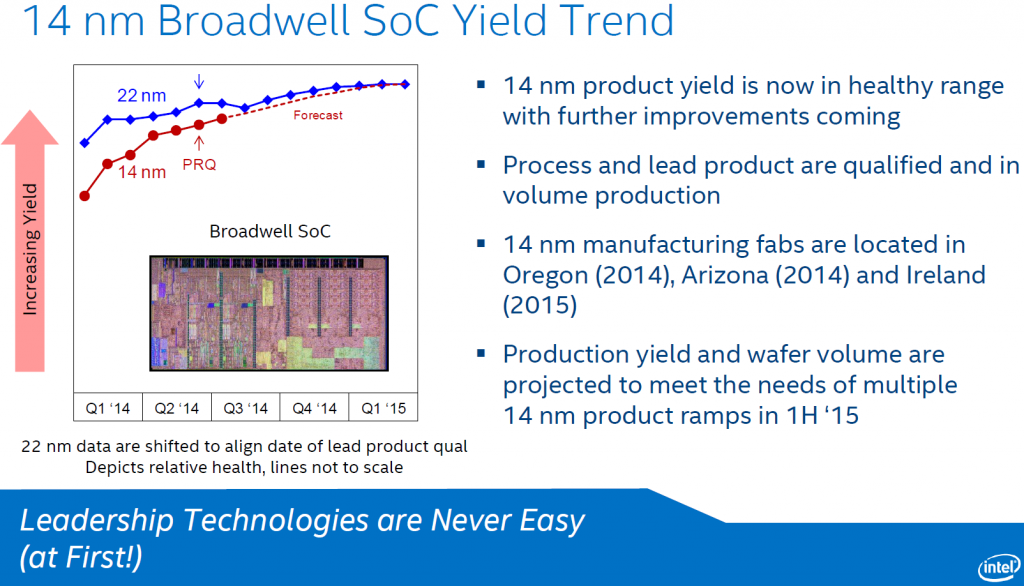Although Intel Corp. has significantly improved yields of chips made using 14nm process technology, the company is still not completely satisfied with the result. Lower-than-expected yields have already caused Intel to postpone mass production of its code-named “Broadwell” microprocessors and will likely affect the company for several more months.
“Overall we have made some good progress during this quarter,” said Brian Krzanich, chief executive officer of Intel, during the company’s quarterly conference call with investors and financial analysts. “Yet, we have an important work left to do. Within our factory network 14nm yields improved meaningfully, but we are behind where we expect it to be. These challenges highlight just how difficult it has become to ramp advanced process technology.”
Intel originally planned to start mass production of its code-named Broadwell microprocessors in the fourth quarter of 2013. However, due to low yields and high density of defects the company had to redesign its process technology.
The company has already started revenue shipments of its Core M “Broadwell” processors to select customers, but in order to maximize yields it had to begin mass production of chips starting from the low-performance models with two cores and relatively simplistic graphics engine. Still, the Core M chips will enable brand-new category of products that feature relatively high levels of performance and very low power consumption.
If Intel’s 14nm yields are behind where the chip giant wants them to be, it is not surprising that the most advanced models of “Broadwell” with four cores and high-end graphics are expected to hit the market only in mid-2015.
Discuss on our Facebook page, HERE.
KitGuru Says: This is not the first time when Intel claims that it is not completely satisfied with its 14nm fabrication process. What remains to be seen is how this will affect availability of products made using the technology.
 KitGuru KitGuru.net – Tech News | Hardware News | Hardware Reviews | IOS | Mobile | Gaming | Graphics Cards
KitGuru KitGuru.net – Tech News | Hardware News | Hardware Reviews | IOS | Mobile | Gaming | Graphics Cards




“not the first time when
Intel claims that it is not completely satisfied with its 14nm
fabrication process. What remains to be seen is how this will affect
availability of products made using the technology.”.
Just because Intel is having low yields does not mean others are having the same issues. The processes are not identical so TSMC with their complex chip (that Huawei 8 core A57) seems perfectly ok although the volumes might not be high. Also, Samsung has their limited production on 14 nm as well possibly some custom parts for their own use. Or some Exynos SoCs for extended testing validation.
Somehow the tin foil hat person within me, is telling me intel are fabricating these lies so we are forced to buy older tech at higher prices for a bit longer.